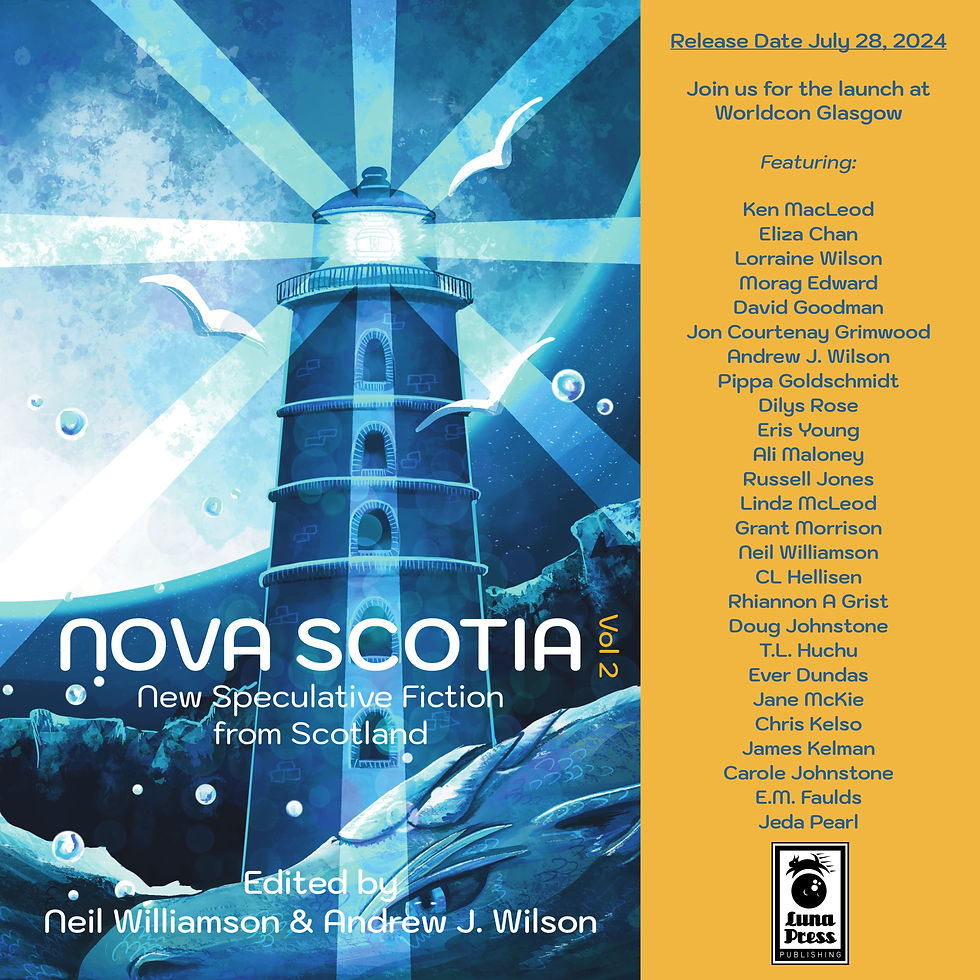
Nova Scotia Vol 2 anthology, edited by Neil Williamson and Andrew J. Wilson, is now available to order! It celebrates the depth and breadth of Scotland's dazzling science fiction and fantasy landscape from its haunted islands to its transformed cities and everything in between. Jenni Coutts created the gorgeous cover art.
You can order the book on its own, or buy the bundle anthology deal - both from the Luna store.
Today we'd like to introduce you to Russell Jones and the story "Blood Lines".
About the author:
Russell Jones is an Edinburgh-based writer and editor. He has published 6 poetry collections, 4 novels and 1 graphic novel. He has a PhD in Creative Writing and was the UK's first Pet Poet Laureate. He likes books, dogs and food.
Russell on the story:
I have no memory of writing this story, although I know I wrote it. The first draft sits on my laptop from 8 years ago, slowly being altered over time until it became the story you see today. It got a revamp just before I submitted it to Nova Scotia 2 and – whilst this is quite a dull account of its creation, and I worry slightly about my prose-based amnesia – I do quite enjoy the irony that the story’s creation partially mimics its content. It is a nearly-forgotten relic of my past.
For me, “Blood Lines” is a story about the tensions between remaining stagnant (perhaps we could call it ‘tradition’) and moving on (perhaps we could call that ‘evolution’). It asks: what do we erase of ourselves when we accept change? What do we deny ourselves by rejecting it? I don’t think there’s an easy answer, except that a world which outgrows us may shun us, and perhaps personal moral centres may struggle to hold strength against shifting sands.
But it’s also about people replacing their body parts on a whim, treating their body as a commodity to be upgraded like a car or gadget. I’m not against that particularly (elements of it seem really cool, I’d love to have stronger limbs or better eyesight) and I am interested in the ecological pressures that might force humanity towards these kinds of technologies. Rather than trying to stop or reverse the climate crisis, for example, are we more likely to simply accept that humankind will alter itself to survive the worsening conditions we have created? This seems likely when the world’s wealthiest and most powerful people would rather build underground bunkers (for themselves), life-extending medicines (for themselves) or rockets to other planets (for themselves) than try to solve the problems for the greater good.
Lastly, I think this story is interested in love (as most of my stories are). I believe that love can exemplify the best and worst in us. Love can lead us to the most extraordinarily kind sacrifices, it can be an ultimate saving grace, the one thing that’s worth living for when all else fails. But it can also push us into terrible, selfish and destructive actions. We can be willing to do monstrous things to ourselves and others because of our ties to love, especially those with whom we share a bloodline.


Comments